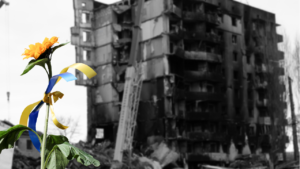Russia continues to cut off of its nose to spite its face. Putin’s quiet retreat from democracy continues to break connections that Russia needs if it wants to fully join what Tom Barnett refers to as the Core Integrated States of globalization. The latest step backward was reported today. The Kremlin announced that dozens of foreign non-governmental organizations must shutter operations throughout the country [“Russia Halts Activities of Many Groups from Abroad,” by Peter Finn, Washington Post, 20 October 2006, “Kremlin Puts Foreign NGO on Notice,” by C. J. Chivers, New York Times, 20 October 2006.] Putin, as always, is sly in the way that achieves his ends. He didn’t just come and tell NGOs he doesn’t like to leave, he had the Duma pass a law that puts in place an onerous registration process that makes NGOs subject to government audits. The Washington Post reported the news this way:
Russia on Thursday suspended the activities of Human Rights Watch, Amnesty International, the International Republican Institute and more than 90 other foreign nongovernmental organizations, saying they failed to meet the registration requirements of a controversial new law designed to bring activists here under much closer government scrutiny. Across the country, foreign grass-roots organizations that investigate human rights abuses, promote democracy and work with refugees folded their tents until further notice, informing staff that all operations must cease immediately. The only work officially authorized was the paying of staff and bills.
Despite protestations that the shutdowns were clearly targeted toward NGOs engaged in specific activities, the Russian Ministry of Justice, the department charged with enforcing the new law, “insisted that the suspensions were neither retaliatory nor permanent,” according to the New York Times article. Such assurances ring hollow when you look at which groups were approved to operate and which weren’t. The Post article insists that Putin has all but admitted that the closures had nothing to do with failing to register properly.
The law, signed by President Vladimir Putin at the start of the year, drew broad criticism as part of a general rollback of democratic freedoms in Russia. Activists said it was intended to rein in one of the last areas of independent civic life here; Putin called it necessary to prevent foreigners from interfering in the country’s political process.
The “spread of democracy” has been a U.S. foreign policy goal of both Republican and Democrat administrations for decades. Pundits like Francis Fukuyama, however, insist that it is the implementation of democratic principles (as opposed to how leadership is determined) that is important in sustaining peace and prosperity. That is what makes Putin’s latest move most troubling. It is aimed at NGOs whose principal purpose is ensuring that democratic principles are upheld. In addition to Human Rights Watch, Amnesty International, the International Republican Institute, other “suspended” groups include the National Democratic Institute, the American Bar Association, the American-Russian Business Council, the American Trade Chamber and Johns Hopkins University, the Danish Refugee Council, the Netherlands-based Russian Justice Initiative, and Doctors Without Borders. The Ministry of Justice posted a list of 73 organizations not yet approved (hence they are suspended). Thirty-eight of those, according to the New York Times, have a clear U.S. connection. The full list of suspended organizations reportedly contains around 100 organizations.
The Ministry claims to have approved an equal number of NGOs, although it provided a list of only 80 of those. According to the NYT article:
Forty-one of those were American, including the Ford Foundation, the Nuclear Threat Initiative and the Moscow office of the Carnegie Endowment for International Peace. Of the 41, 33 appeared to be child adoption agencies.
The Post article claims that other American adoption agencies were suspended. Russia has a right to be concerned about sending children out of the country. With its population in decline, Russia’s future could very well rely on turning its demographics around. Economically Russia’s future looks brighter than it did in the aftermath of the collapse of the Soviet Union — especially if oil and natural gas prices remain high. It would be tragic if Putin’s policies resulted in undermining Russia’s movement into the Core. Ultimately, Russia’s peace and prosperity will depend as much on the connections it makes as the money it brings in. Russia cannot remain resilient while primarily basing its economic future on commodity exports. It needs to diversify and attract foreign direct investment. Unfortunately, most of Putin’s recent actions will result in less, not more, investment.




